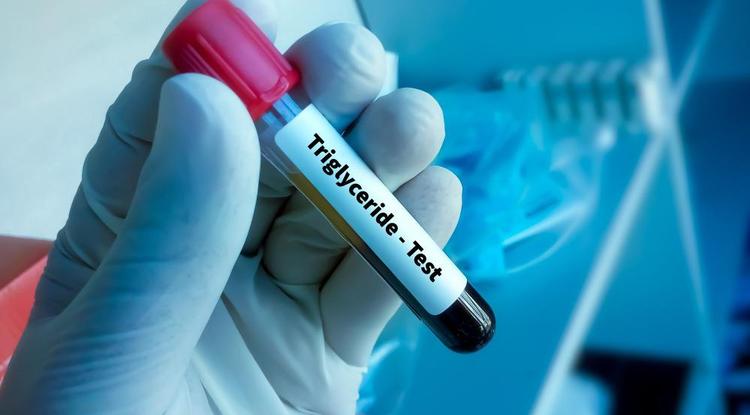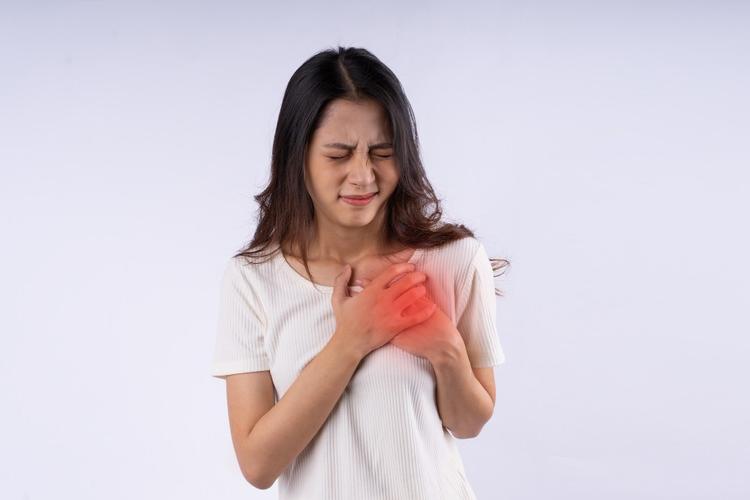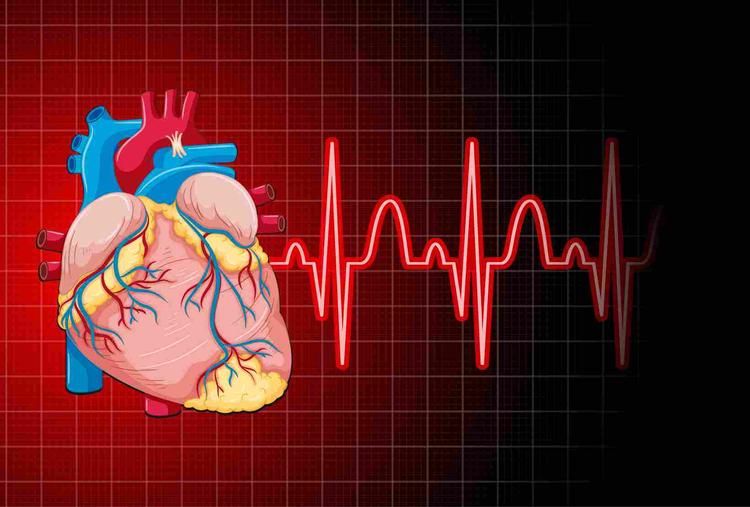What is High Cholesterol? Symptoms of High Cholesterol

Medically Reviewed By
Dr Divya Rohra
Written By Srujana Mohanty
on May 10, 2022
Last Edit Made By Srujana Mohanty
on Apr 30, 2024

High cholesterol or hyperlipidemia, refers to an increased level of cholesterol in your blood. Hyperlipidemia is becoming an alarming disorder in India leading to serious health effects and is proving to be fatal. The high cholesterol cases in the urban areas in India are approximately around 25-30% whereas, in the rural areas, the estimate is approximately around 15-20%. The lack of any specific symptoms, makes the early diagnosis of increasing cholesterol levels very difficult. Therefore, regular monitoring of cholesterol levels is very essential.
According to the Centres for Disease Control and Prevention (CDC), children falling in the age group 9-11 years, and adolescents at the age of 17-21 years should get a cholesterol level test. To monitor their cholesterol levels adults should get the test done every 4-6 years. This will help in monitoring the levels of cholesterol adequately. In this article, let us study what is meant by high cholesterol, its symptoms, causes, treatment, and prevention.
What is High cholesterol?
The fatlike, waxy substance produced by the liver is known as cholesterol. The cholesterol is a lipid that plays an important role in various biological functions like the development of cell membrane, production of vitamin D and certain other hormones in the body. Although cholesterol is important for your body, high levels of cholesterol increase your risk of heart attack and heart related disorders. This is because cholesterol does not dissolve in water for its transport through the body.
Lipoproteins are special particles that are responsible for the transport of the cholesterol in your body. These lipoproteins are actually measured in a blood test, that helps the doctor analyse whether or not you have high cholesterol levels. Lipoproteins are of two major types:
Low-density lipoproteins (LDL)
These are referred to as the bad cholesterol. These accumulate in your arteries making you more prone to heart attack or stroke as enough blood is not able to flow through your arteries. If you eat fatty food, the levels of LDL in your body increases, and this is termed as high cholesterol (hyperlipidemia or hypercholesterolemia)
High-density lipoproteins (HDL)
These lipoproteins are also referred to as the good cholesterol because they help in minimising the levels of LDL by returning them back to the liver for elimination.
The cholesterol levels are considered high when the total cholesterol level in your blood is approximately 240 mg/dL.
What are the symptoms of high cholesterol?
High cholesterol levels are generally asymptomatic, that is, they do not show any preliminary symptoms or indication. The high levels lead to severe health complications like heart attack or stroke directly. Such complications occur at an extreme stage, that is, when the cholesterol deposits in your arteries leading to the formation of plaques. These plaques are deposited into the arteries, making the arteries thin, thereby causing less blood to pass through it. You only get to know about high cholesterol once you get a cholesterol level test done.
This test is also a part of routine health checkup, so you may get detected with high cholesterol levels during your regular checkup or sometimes your doctor may advise you if you are either more prone to getting high cholesterol or if you have some symptoms. Since there are no symptoms of high cholesterol, the symptoms of diseases associated with high cholesterol acts as an alarming sign for your doctor to get these tests done. The various symptoms or health disease that make you more prone to hyperlipidemia or may lead you to a cholesterol level test includes:
- If you have a family history of heart attack, heart related disorders or high cholesterol levels.
- If you have high blood pressure.
- If you are obese or overweight.
- Cigarette smoking and excessive consumption of tobacco can also lower the levels of HDL, ultimately increasing the levels of LDL and causing high blood cholesterol levels.
- If you feel a pain in your chest pain, medically known as angina
- If you have yellow colored soft growth or lesions or fatty bumps on your skin (xanthomas)
- If you have diabetes
- Impotency in males can also be because of the excess accumulation of blood cholesterol in arteries.
- If you have greyish-white circles under your eyes.
- If you live an unhealthy lifestyle and do not exercise regularly.
- If you have other health conditions like kidney disease, hypothyroidism, polycystic ovarian syndrome (PCOS), HIV/AIDS, and Lupus.
- Pregnancy may also lead to high cholesterol.
- Certain medicines can also make you prone to high cholesterol levels, like, acne, high blood pressure, cancer, organ transplant, irregular heart rhythms, diuretics, birth control pills, beta-blockers, and antidepressants.
- Bursting of the deposited plaques can also lead to the formation of blood clots in the arteries.
- What can high cholesterol levels lead to?
High cholesterol levels cause the accumulation of cholesterol in arteries in the form of plaques. These plaques change the structure of the arteries, making them narrower. Therefore, less blood is able to flow through these arteries. The decreased flow of blood increases blood pressure leading to some major health complications. According to the National Heart, Lung and Blood Institute, high cholesterol levels increase your chances of getting a:
- Stroke
- Coronary heart disease
- Heart attack
- Chronic kidney disease
- Peripheral artery disease
How is high cholesterol levels treated?
Since high cholesterol levels are associated with long-term risk of heart disease and stroke, it becomes extremely important to control and reduce the cholesterol levels in the blood. Medicines and lifestyle modifications are the only options available to treat and prevent high cholesterol levels. Lifestyle modifications are recommended if you are more prone to the development of hyperlipidemia. Medicines are often prescribed to people when lifestyle modifications do not help much and the patient has a 7.5 % or higher risk when calculated using the atherosclerotic cardiovascular disease (ASCVD) risk calculator.
Medicines for treating high cholesterol levels
There are several medicines that are prescribed by the doctor to bring down the high cholesterol levels in your blood. The most commonly prescribed class of medicines include:
HMG CoA reductase inhibitors
These are a group of drugs that are commonly known as statins. These drugs prevent the formation of cholesterol in the liver thereby reducing the amount of cholesterol being circulated in the blood. Statins target both low-density as well as high-density lipoproteins. They work by lowering the low-density lipoproteins effectively but can also contribute in lowering the levels of triglycerides and high-density lipoproteins. Statins are not recommended for pregnant women or those who have liver disease. Statins are the most commonly used drugs for high cholesterol levels because of the minimum side effects of the drug.
PCSK9 Inhibitors
These inhibitors do not directly act on cholesterol levels but actually bind to certain proteins present in the liver cells and inactivate those proteins. The inactivation of proteins then signals the body to lower the levels of low-density lipoproteins. These inhibitors are given in the form of injections. PCSK9 inhibitors are used in specific cases like patients who do not respond to statins or those who have a family history of hyperlipidemia.
Bile acid sequestrants
This group of drugs targets the working of LDL. These sequestrants for bile acid-binding agents remove bile acids from the liver. Bile acid is made up of LDL cholesterol, therefore, to replenish the lost bile acid, the body breaks down more LDL cholesterol, thereby, reducing its levels in the body.
Selective cholesterol absorption inhibitors
As the name suggests, these are a group of inhibitors that reduce the absorption of cholesterol in your body. These are the second most commonly used drug after statins for the treatment of hyperlipidemia. As the absorption of the cholesterol reduces, the level of cholesterol in your body automatically decreases.
Fibrates
The medicines falling in this class decrease the production of very-low-density lipoproteins in the liver. These very-low-density lipoproteins are made up of triglycerides, therefore, fibrates indirectly decrease the level of triglycerides in your body.
Omega-3 fatty acid supplements
If omega-3 fatty acids are given in high doses, it can lower the levels of triglycerides in your body. The omega-3 fatty acid supplement that is most commonly used is OTC fish oil.
Niacin
Niacin commonly known as vitamin B or nicotinic acid increases the level of high-density lipoproteins while lowering the levels of low-density lipoproteins, total cholesterol, and triglycerides.
Lifestyle modifications for treating high cholesterol levels
Your lifestyle is a key to various health conditions. A poor lifestyle can degrade your health and a good, healthy lifestyle can make your health better. Therefore, it is very important for you to ensure that you take a proper diet and live a healthy life. A good lifestyle decreases your chances of most adverse health conditions including high cholesterol levels. According to the Centres for Disease Control and Prevention (CDC), small modifications in the lifestyle can help in the treatment and prevention of high cholesterol levels.
Have a healthy diet
What you eat has much to do with your health. A balanced nutritious diet is very important for a healthy life. Certain dietary tips that can help in keeping the levels of cholesterol low in your blood include:
- Take a diet that has low levels of trans and saturated fats.
- Take a diet that is rich in fibre and unsaturated fats.
- Include food like avocado, beans, oatmeal, and vegetable oils.
Regular exercise
Regular exercise makes your body fit and free of health complications. Regular exercise also keeps a check on your weight, which is another reason for various health complications. Certain recommendations related to regular exercise include:
- Adults should do moderate intensity aerobic exercises for at least 150 minutes per week.
- If you are into vigorous physical exercise, then doing it for 75 minutes is sufficient.
- You can also opt for weight and resistance-based strength training for 2-3 days a week.
- Quit smoking
According to the American Health Association (AHA), you can prevent the occurrence of various health complications, especially heart diseases and high cholesterol levels, by quitting smoking only. The extensive consumption of tobacco damages the blood vessels and also lowers the levels of good cholesterol (HDL) in your blood. If you quit smoking for 15 years, your risk of developing high cholesterol levels and heart disease is just like any other non-smoker. So quitting smoking is one of the most essential things that you should do.
Avoid alcohol consumption
Anything in excess is bad and the same goes with alcohol. Excessive drinking can gradually lead you to some severe health complications. According to a study in 2020, the amount of alcohol consumption directly affects your health and increases your risk of triglycerides and cholesterol levels in your blood. The acceptable intake of alcohol for men is two drinks a day and for women, the acceptable limit is one drink a day. Therefore, if you are a heavy drinker, then you must surely limit the amount of alcohol consumption in your body.
Weight management
Being overweight or obese can also land you into severe health conditions. Maintaining a proper weight is very important to lead a healthy life, that is, devoid of any health complications. Being overweight means that you have a higher body mass index (BMI) which is directly related to the excess fat in your body. The excess body fat can affect how your body processes cholesterol levels. The high levels of fat in your body reduces the low density lipoproteins (LDL) in your blood, thereby increasing your risk of getting a heart attack or stroke.
Takeaway
High cholesterol levels are surely an issue of concern. The fact that the rising levels of cholesterol do not have any symptoms, makes its diagnosis and treatment even more challenging. High cholesterol levels are identified only when they lead to a severe health issue like a stroke or heart attack. Regular monitoring of cholesterol levels can help in keeping a check on the rising levels of cholesterol.
A healthy lifestyle and regular exercise also plays an important role in maintaining optimum levels of blood cholesterol. Now that you know the signs that may indicate high cholesterol levels, it is better that you observe these signs at an early stage and consult your doctor for the same. This will prevent the cholesterol levels to rise to a level that can lead to heart attack and stroke.
Frequently Asked Questions (FAQs)
1. How can I reduce my high cholesterol?
Medicines, regular exercise, and a proper diet can help in reducing the maintaining the cholesterol levels to an optimum range.
2. What is considered dangerously high cholesterol?
Blood cholesterol levels above 240 mg/dL are considered high.
3. What is normal cholesterol?
The normal total cholesterol levels in a healthy adult are approximately 125 - 200 mg/dL. The high-density lipoproteins are greater than 40 mg/dL and the low-density lipoproteins are less than 100 mg/dL.



